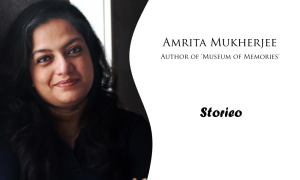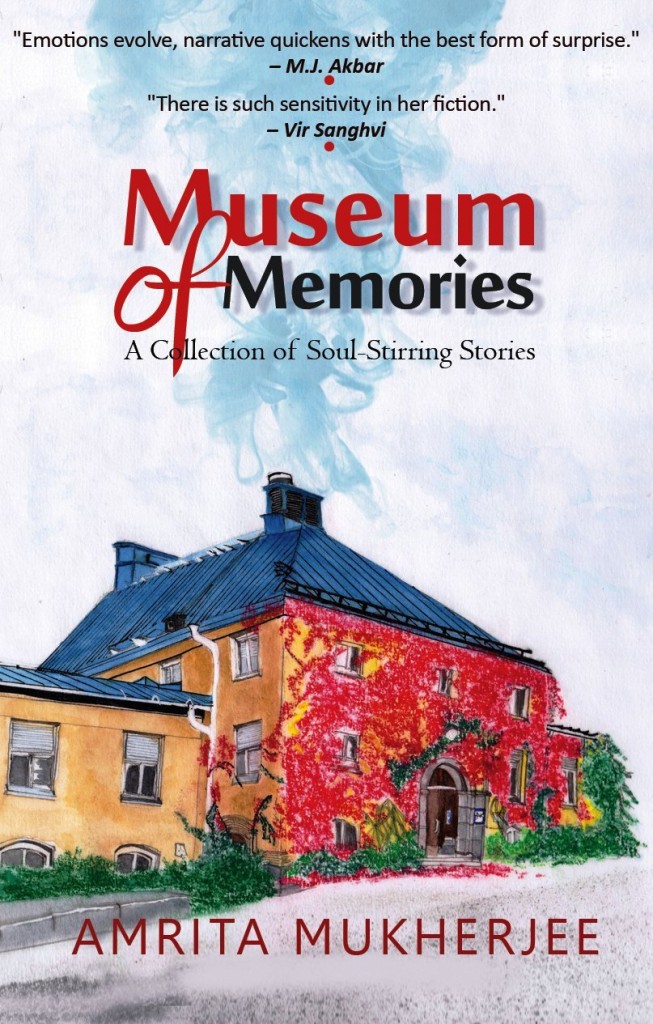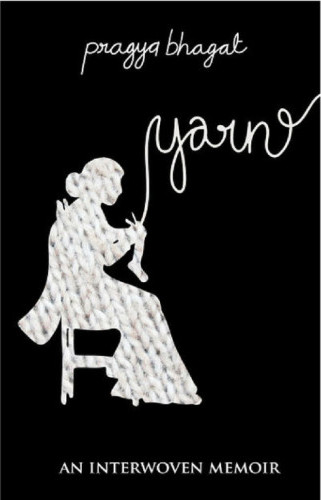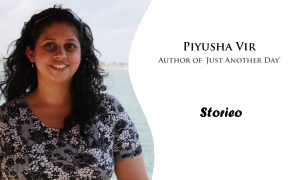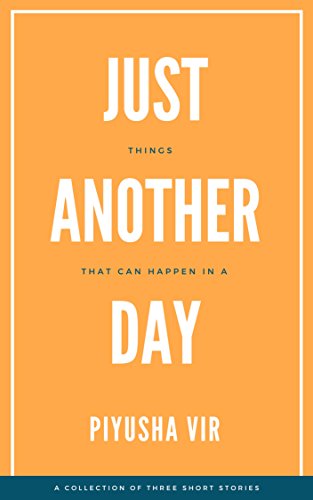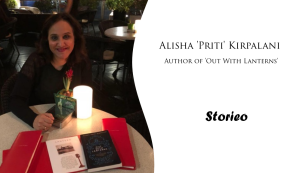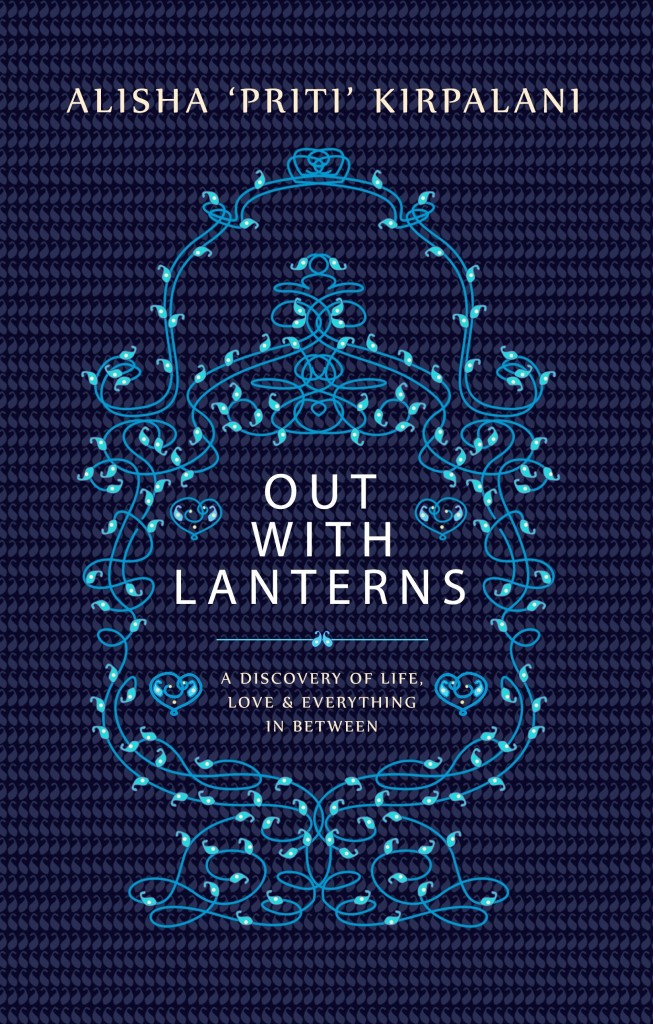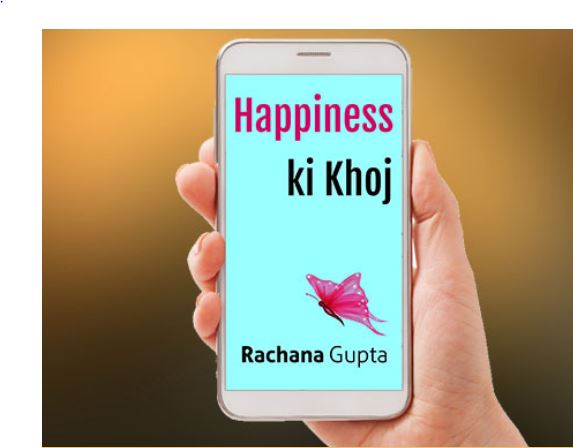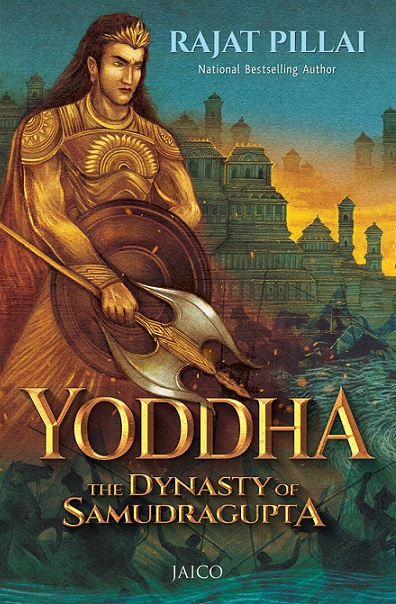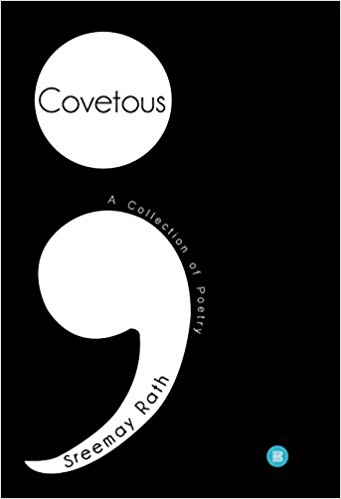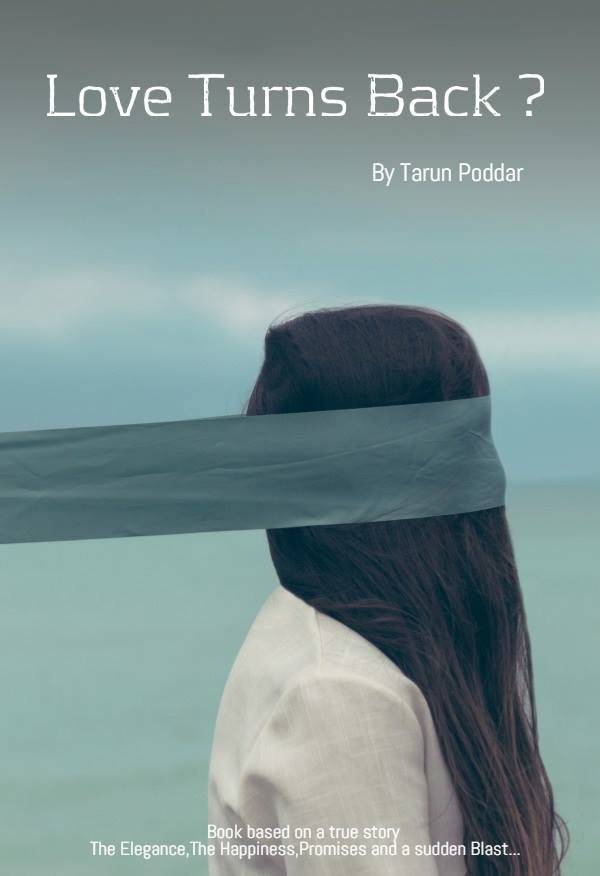Veena Nagpal is an Indian writer known for her genre bending fiction featuring love, passion, intrigue and boldly etched characters exploring vital issues facing humankind.RADIUS 200 is her fourth novel.
Her earlier novels include The Uncommon Memories of Zeenat Qureishi (Tara); Karmayogi (Jaico) and Compulsion (Sterling). She has also written four books for children. A passionate environmentalist, she has conducted more than five hundred environment workshops for school children in the NCR region.
She loves travelling. “Must have inherited gypsy blood from somewhere,” she laughs. She is also an avid photographer and dabbles in oil painting.
RADIUS 200, a novel.
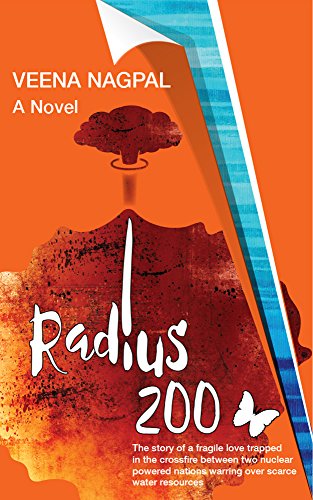
The story of a fragile love caught in the crossfire between two nuclear nations warring over scarce water resources.
What is the story behind your book ‘RADIUS 200’?
Radius 200 is about love and longing and about celebrating the capacity of the human spirit to survive all possible odds.
It is a ‘what if…’ military thriller/military romance, placed in the year 2040 and 2060.
What if a nuclear powered neighbouring nation was to ‘steal’ an entire river from under our eyes?
What if a top-ranking Indian General was to take a unilateral decision to strike back, thereby triggering a cataclysmic reaction?
What if, in the aftermath of the nuclear attack, India was left with a devastated Exclusion Zone, 200 kilometers in radius?
And what if your love was stranded inside the Exclusion Zone…
Where did you get your idea for the book?
When something about the world he/she live in, disturbs or nags so much that it doesn’t let him/her sleep, a writer sort of just erupts into writing
This book?
Not many years ago, I saw a small video made by none other than ex-President Abdul Kalam. The video graphically depicted what water scarcity could do to human life. The images stayed in my mind.
Experts started predicting that the next World War would be over water and that Asia was a major Flash Point. China started building the world’s largest dam at Medog, 30 kilometers from the Indo China border, to divert the waters of the Brahmaputra to its own lands. Once the dam becomes a reality China can flood India or starve it of water at will.
All these facts started nagging me, churning my imagination…
The way I see it, each one of us lives in a small world of out own – a kind of limited circle – a sort of a daayara within which we must operate… in fact for a long time the working title of this novel was Daayara.
Then there are also those larger circles that represent the life of nations, the life of this earth we live on.
I find it fascinating to imagine what happens in the space where these little circles – each with its own baggage of emotions and relationships – intersect with the larger circles; when individual concerns – unexpressed loves, unfulfilled ambitions – collide against the larger forces at work in this world.
This combination of water scarcity, a possible water conflict between two nuclear nations and in India, the spectacle of politico-military relationships slithering down a slippery path leading to growing restlessness among the Defense Forces (I belong to a fauji family), started nagging me.
I just had to explore how human relationships would work out in this extreme scenario.
RADIUS 200 is the result of this exploration
Challenges you faced while writing this book and in your life as an author?
I was dealing with a military theme. I had to be credible, get my facts right. For example the strategic weapon I was going to choose for blowing up a dam, had to be technically feasible. So, yes, it was a huge challenge and I had to do a lot of research.
Having done my homework, I was also very fortunate in getting professional advice, which I have duly acknowledged, in the book.
An author’s life is always subservient to life as a human being. All every author really wants is to be able to write, write, write and in her spare time read, read, read…
It doesn’t always happen. Life intervenes with its persistent demands. Family matters. Illness – sometimes life threatening.
One of the biggest regrets is the long hiatus between my first two novels and the next two. Life intervened.
What is your life mantra?
Live NOW. Now is all you can be sure you have.
What is your writing process like?
Creative writing is something magical – out of just twenty-six alphabets and a fistful of punctuation marks you create a whole new universe.
The skill and craft of writing is, of course, painstakingly honed over years of practice.
To me, characters are most important. I like to know them, their back-story, and their idiosyncrasies as intimately as I can. Somehow, after that the characters start taking over – walking, talking, doing things the way they want. They just hijack the story.
Another thing that is important to me is the lay-off period. Once I ‘finish’ my manuscript I shove it into the deepest recesses of my desk and let it lie there for at least six months.
When I return to it I can better separate the wheat from the chaff.
Then begins the most important phase of the writing process – the rewrite.
Anything special about your book that you want to share?
I’m not too sure, but I think Radius 200 is perhaps the first Military Thriller written by an Indian woman.
In fact at the paperback launch of the book at JLF 18, one gentleman actually questioned how I could take on such a theme. What did I know about matters military?
And I do not see a single reason why I should restrict myself to ‘feminine’ themes only. I am ready to stand up and claim the androgynous space on behalf of all women writers.
According to you, what are the three qualities an author must have to achieve success?
Curiosity, acute observation and the stamina to put in hour after lonely hour at your desk.
What are your plans for next book?
One is in the lay-off stage. Another half written and a third in the planning stage.
I really do not know which one will take birth first.
It’s too early to divulge the theme.
What advice do you have for young writers?
Oh, if I had any advice to give wouldn’t I have taken it myself?
Jokes apart, people say write what you know – I disagree. I would say write what fascinates you, keeps you awake, write what you need to figure out. Writing is a journey of discovery – of the world around you and yourself as a person.
Write, write and write.
Don’t wait for inspiration. Inspiration has to find you at your desk before it can make its way to you.
Until you have spent 10,000 hours writing, don’t even let the suggestion enter your mind that you are a writer.
In the meanwhile
Read, read and read. Start with RADIUS 200…
Share a quote or line that has been your inspiration.
“One day I will find the right words, and they will be simple.”
–Jack Kerouac, The Dharma Bums


